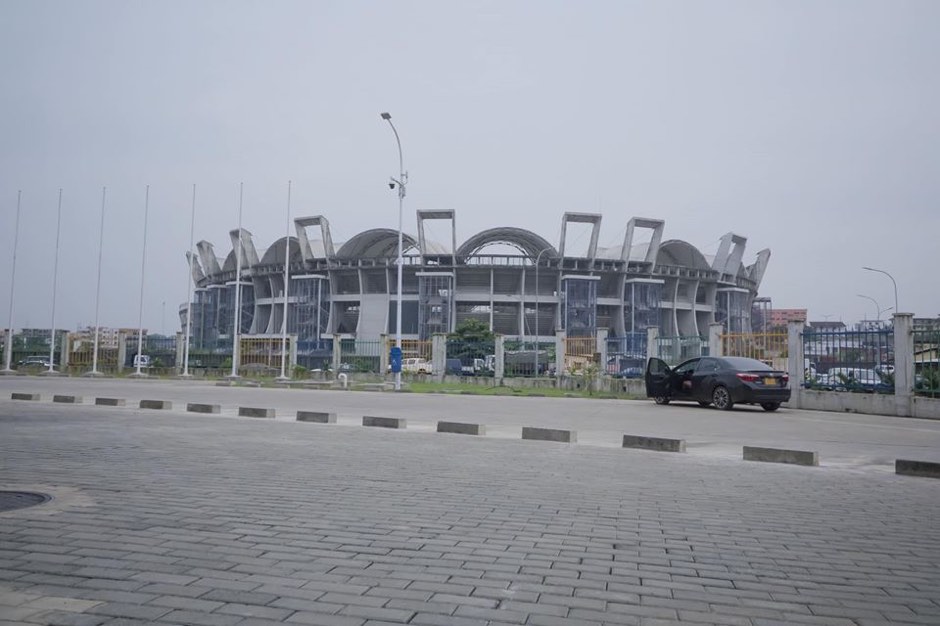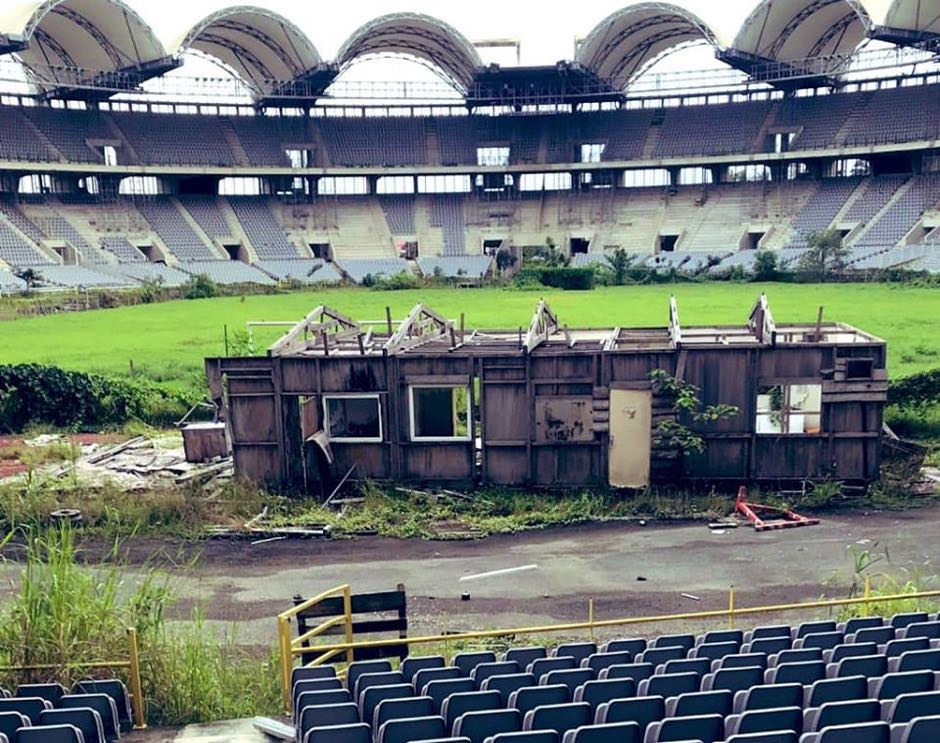One of Gabon’s prestigious sports arena, Stade Omar Bongo has become a rot in the fabric of the country where a good number of national monuments that have gone into a state of total despair.
Purposely renovated by the government to host some of the 2012 Africa Cup of Nations group matches, the stadium, which has been the nation’s symbol of national pride, is gradually withering away and would require urgent and adequate attention to regain its beauty.
From a far view, the stadium, whose renovations started around September 2010 at a cost of $220 million, is a beauty to behold. But on entry, the 41,000 seater facility, is a sorry state of decay and disarray.
The grass on the main bowl pitch shares some similarities with make-shift pitches in villages across the country, save for the fact that instead of the yellowish-green grass seen during the dry season, the rains have given it some green texture.
Toilets have been left in a bad state with foul stench coming from them because of the lack of water, as well as dirty tiles highlighting the disastrous state of the stadium which was built in honour of former president Ali Bongo’s father whom he succeeded after his death in 2009.
The tartan track in the main bowl is in a sorry state as it has worn off to the extent that no major international athletics event would be allowed by the sport’s world body, the International Athletics Association’s Federation (IAAF), to be held there.
To rub salt into injury, the stadium complex is without the required security as the few security personnel at the gates and inside the complex hardly give a hoot about what goes on there.
 Violent robberies and vandalism have been reported nearby and, despite the stadium’s padlocked gates, a recent break-in led to the loss of expensive construction equipment. Lying fallow are construction vehicles with deflated tyres.
Violent robberies and vandalism have been reported nearby and, despite the stadium’s padlocked gates, a recent break-in led to the loss of expensive construction equipment. Lying fallow are construction vehicles with deflated tyres.
According to a source, who did not want to be named, none of nine generators in the complex is functional.
It is said that the stadium was constructed in a manner that makes maintenance almost impossible without giving the job out to contractors on a retainer basis.
A similar sorry state of affairs is seen all over the country where stadia are managed by the government through the National Sports Authority (Anageisc).
(Photo Credit: Freddhy Koula )
















